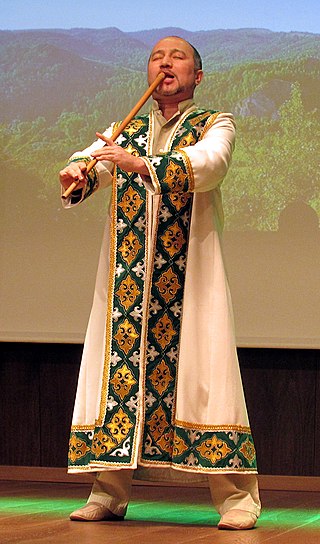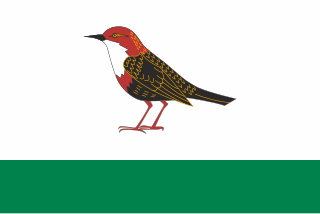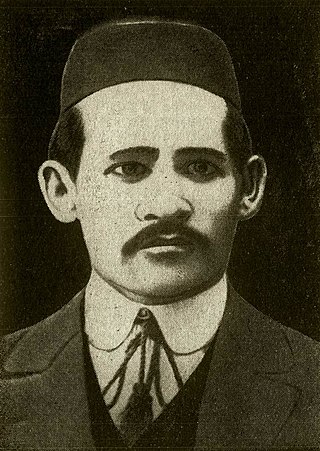
The Bashkirs or Bashkurts are a Kipchak Turkic ethnic group indigenous to Russia. They are concentrated in Bashkortostan, a republic of the Russian Federation and in the broader historical region of Badzhgard, which spans both sides of the Ural Mountains, where Eastern Europe meets North Asia. Smaller communities of Bashkirs also live in the Republic of Tatarstan, the oblasts of Perm Krai, Chelyabinsk, Orenburg, Tyumen, Sverdlovsk and Kurgan and other regions in Russia; sizable minorities exist in Kazakhstan and Uzbekistan.

Bashkir is a Turkic language belonging to the Kipchak branch. It is co-official with Russian in Bashkortostan. It is spoken by 1.09 million native speakers in Russia, as well as in Ukraine, Belarus, Kazakhstan, Uzbekistan, Estonia and other neighboring post-Soviet states, and among the Bashkir diaspora. It has three dialect groups: Southern, Eastern and Northwestern.

Bashkortostan, officially the Republic of Bashkortostan, also known as Bashkiria, is a republic of Russia between the Volga and the Ural Mountains in Eastern Europe. The republic borders Perm Krai to the north, Sverdlovsk Oblast to the northeast, Chelyabinsk Oblast to the east, Orenburg Oblast to the south, Tatarstan to the west and Udmurtia to the northwest. It covers 143,600 square kilometres and has a population of 4 million. It is the seventh-most populous federal subject in Russia and the most populous republic. Its capital and largest city is Ufa.

Music in Bashkortostan is the music of the peoples who live in Bashkortostan.

Bashkir State University was located in Ufa, Bashkortostan, Russia. Founded in 1909, it was a classical university of Russia.

Birsk is a town in the Republic of Bashkortostan, Russia, located on the right bank of the Belaya River, 102 kilometers (63 mi) from Ufa, the capital of the republic. Population: 41,635 (2010 Census); 39,992 (2002 Census); 34,881 (1989 Census).
Gaziz Salih uli Almukhametov was an ethnic Bashkir, opera singer (tenor) and composer. He was born in the village of Muraptal of Sterlitamaksky Uyezd of Ufa Governorate .From 1922 to 1929, he lived in Kazan. He was the People's Artist of the BASSR from 1929.Founder of the Bashkir State Opera and Ballet Theater in Ufa.

Ufa Governorate was an administrative-territorial unit (guberniya) of the Russian Empire with its capital in the city of Ufa. It was created in 1865 by separation from Orenburg Governorate. On June 14, 1922 the governorate was transformed into the Bashkir Autonomous Soviet Socialist Republic. It occupied an area of 122,005 square kilometres (47,106 sq mi) and the territory of governorate was divided to six uyezds.

Majit Gafuri was a Bashkir and Tatar poet, writer, and playwright. He was one of the leaders of the democratic trend in Tatar literature and one of the founders of national children's literature.

Shaikhzada Muhametzakirovich Babich was a Bashkir poet, writer and playwright. He is considered a classic author of Bashkir national literature. He was a member of the Bashkir national liberation movement, and a member of the Bashkir government (1917–1919).
Zainab Biisheva (Bashkir: Зәйнәб Биишева, real name Zainab Abdullovna Biisheva, 15 January 1908, village of Tuembetovo, was a Bashkir poet, writer and playwright.

Rami Yagafarovich Garipov, was a national poet of Bashkortostan, writer and playwright.

Hadiya Davletshina , was a Bashkir poet, writer and playwright.

Free Idel-Ural is a civic movement of the people of Idel-Ural that aims for independence for the republics of Mordovia, Chuvashia, Mari El, Tatarstan, Udmurtia and Bashkortostan and the integration of these six republics into one union with a common border, economic space and collective safety system.

Maksud Syundyukle was a Tatar and Bashkir poet, translator. Member of the Writers' Union of the Bashkir ASSR. Honored Worker of Culture of the Bashkir ASSR.

Jalil Giniyatovich Keyekbaev was a Bashkir linguist, Turkologist, doctor of philological sciences (1960), professor (1961), writer and member of the Bashkir Autonomous Soviet Socialist Republic Writers' Union. He is the founder of Bashkir linguistics and of the modern Bashkir school of Ural–Altaic languages.
Miftakhetdin Kamaletdinovich Kamaletdinov, known as Akmulla (1831–1895) was a Bashkir and Kazakh educator, poet and philosopher.
Birsk State Pedagogical Institute is a higher education institution founded on 27 June 1939 to train teaching staff. Reorganized on 9 February 2012 by joining Bashkir State University as a branch.
Birsky Uyezd was one of the subdivisions of the Ufa Governorate of the Russian Empire. It was situated in the northern part of the governorate. Its administrative centre was Birsk.
Liya Zakirovna Shakirova was a Soviet and Russian linguist, professor of pedagogical science and teacher-methodologist. She worked at Kazan State Pedagogical Institute from 1948 until her retirement in 2003 and authored approximately 420 scientific articles that included textbooks on Russian language teaching methology, teaching methods and manuals for students and teachers at universities. Shakirova received the Order of Lenin, the Medal "Veteran of Labour" and the Medal "For Valiant Labour in the Great Patriotic War 1941–1945" in her lifetime.














